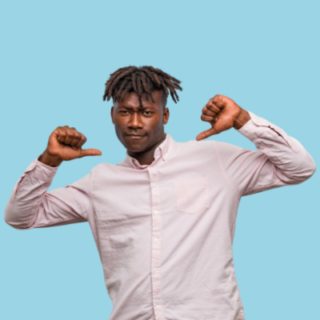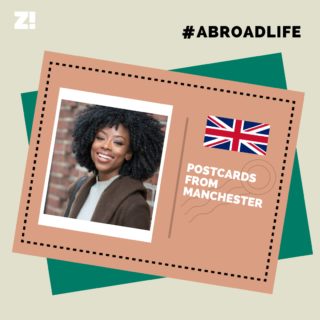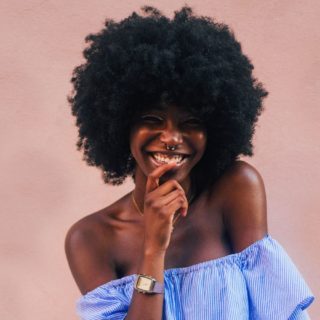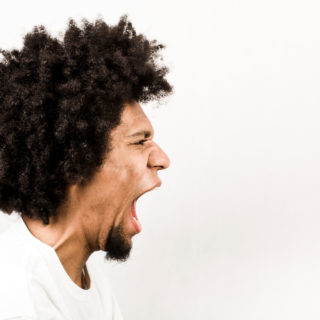Twenty minutes before hopping on this Abroad Life interview, I knew Liberia was in West Africa, was aware George Weah was president and was also certain the nation’s capital was Freetown (Liberia, liberty, Freetown, it made sense in my head). Thankfully Google did a hard reset on that very wrong piece of knowledge (it’s actually Monrovia) and I learnt a little bit more along the way. Who better to show off my new knowledge with, than today’s subject – Edet, who spent eleven years in Liberia and is currently working towards a degree in China.
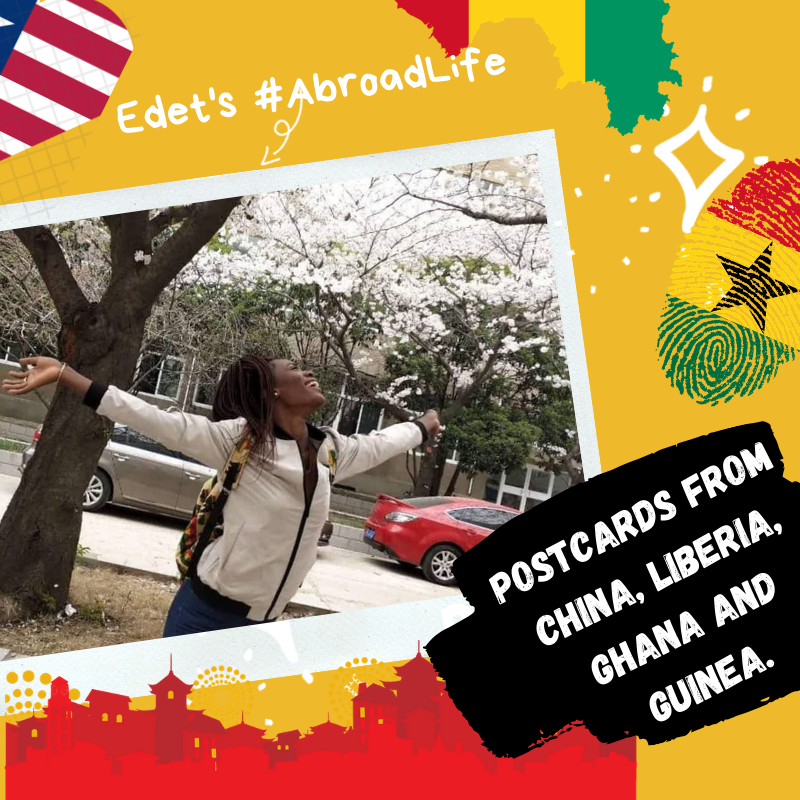
You don’t know what you’ve entered with this interview. Tear out a sheet of paper. What is the capital of Liberia? Who is the current president and what language is spoken the most in the country?
An ambush! Well, Monrovia is the city capital. George Weah is the current president and the most commonly spoken language is Koloqua. Just think broken English.
Okay, you try small. Can you speak Koloqua and are there any other native Liberian languages you can speak?
You know, I actually can’t speak any other language and even Koloqua — I struggle with it a little bit. They keep adding more and more words to it, a girl is confused!
Is that a fact? Okay tell me something in Koloqua.
Let’s see. Liberia jollof ress swee pass Nigeria own. Hehe.
Wait, I understand that! Blasphemy!! Well since you’ve brought Nigeria into this matter, when was the last time you visited?
So here’s the thing. My dad is Nigerian, from Akwa Ibom and my mom is Liberian. But other than that —
Okay great. I need you help me translate something in your language — “Nigerian Jollof is infinitely superior to whatever y’all Niggas have in Liberia. Equally divine is the culinary masterpiece – semo and efo-riro which surprisingly doesn’t get the love it deserves. Boyin out!”
Well about that. I haven’t had too much to do in the country. I visited just once when I was a lot younger and that’s been it really. The most Nigerian thing about me is my name – Edet, everyone calls me Eno in Liberia.
Nevermind. Points have been made. Facts have been spoken. So your name must stick out in Liberia. How do they feel about Nigerians over there.
Oh you know, they love them. They don’t trust them.
Wait what?
It’s just this thing and it’s one of the reasons I love Liberia so much, they are incredibly loving and incredibly accommodating. So by default, they welcome Nigerians, they love them. But when it comes to business, it’s a different matter, they just do not trust Nigerians enough to want to deal with them. I’ve never really understood why.
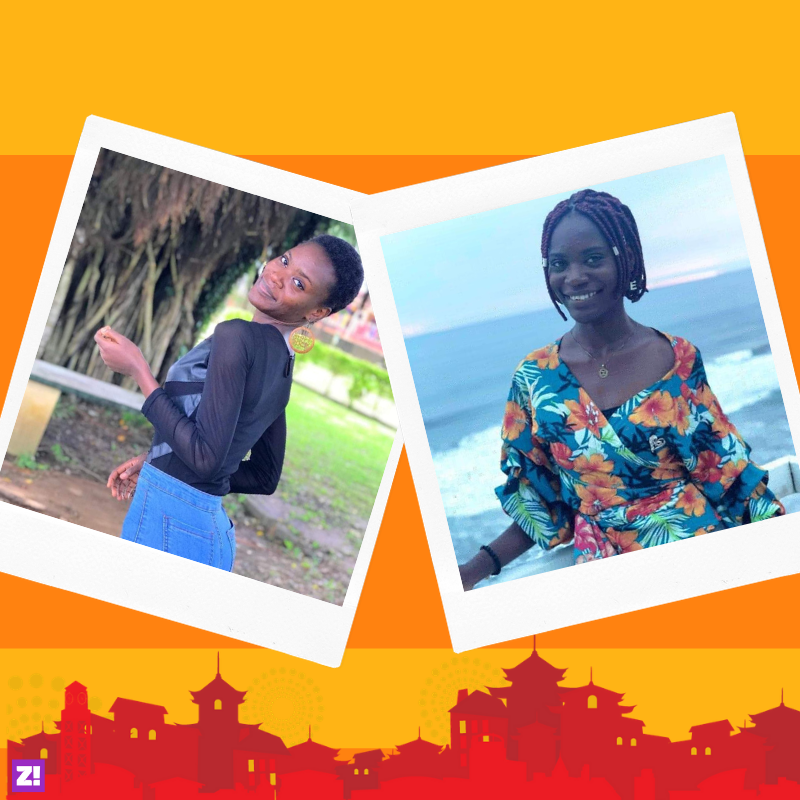
Hm. When will our good reputation from war? So do you have dual citizenship in Liberia and Nigeria then?
No, just Liberia. Even though I’ve been in and out of the country for eleven years. I actually schooled in Ghana from Primary 3 to JSS 1 and then started JSS 3 in Guinea. Most of my memories of that time are tied around school.
Oh wow. Look at you crossing borders and visiting West African countries before puberty even hit, and I haven’t even used style to enter Togo. Must be nice.
Haha. My family moved around a bit, but yeah, it was nice. I mean, minus all the flogging in school.
You can’t see me, but I’m raising my fist in solidarity.
Haha. Well, I particularly remember Ghana being a very solid foundation for my schooling. It was a great and easy environment to grow up in, Guinea not so much.
This tea? Give me to drink it right now.
Haha. It wasn’t anything serious. Just, the native languages in Guinea are French, Susu, Fula or Mandigo. Guess which one of them I could speak.
French maybe?
If only. I couldn’t speak a single language there so it was quite tough in the beginning. I attended a Sierra Leonian school in Guinea, and because the country is French-speaking, my school usually had students take national examinations in Sierra Leone. But I wasn’t used to their curriculum yet. When it was time to write the JSS 3 examinations, it was decided I had to take the Basic Education Certificate Examination (BECE), which is like taking common entrance in JSS 3.

Shet men.
Shet indeed. My mom threw a fuss at first, but eventually, I took the exam. Now you didn’t hear this from me, but if I had to pick between Ghana and Guinea, Ghana wins easily, only thing is, Guinea is cheaper.

I mean a little… well …
Tear another sheet of paper. Who was the white man Monrovia was named after?
Chey. Interview not BECE, please, please.
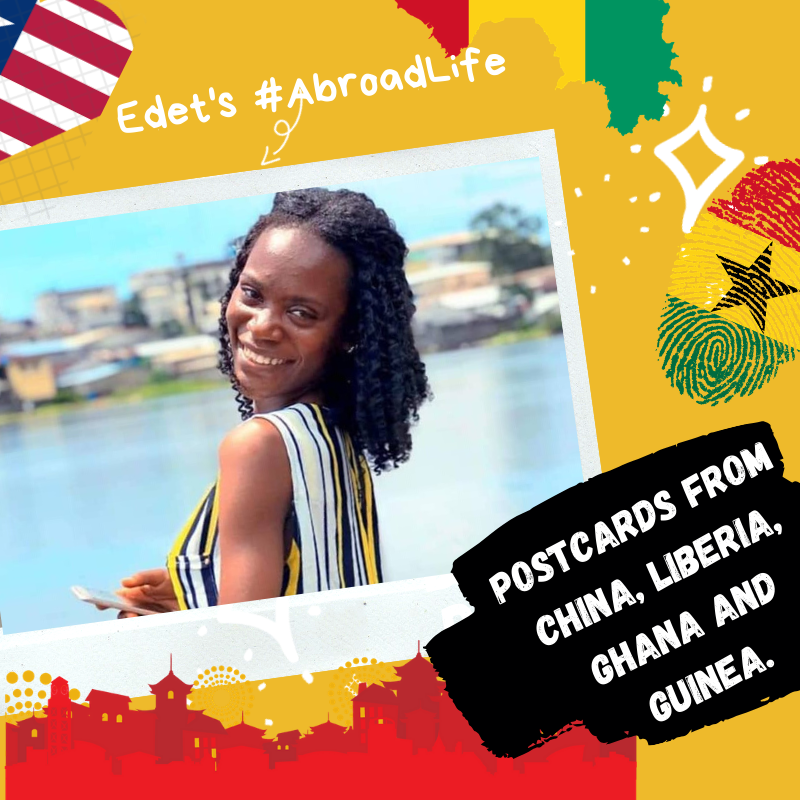
Haha. Only cause I’m nice, but make sure to go binge on jollofroad.com after this interview.
To very serious issues, Liberia is a country that has been ravaged by a civil war and more recently, ebola. On the civil war, has it affected how citizens relate with each other?
The war is still very fresh in people’s minds, especially now that there is some tension in the country. It’s surprising because, even though so many lives and so much evil happened during that period, there’s no holiday, hardly any commemorative events to mark it. It’s actually quite sad, it just festers.
Terrible. And ebola? How did you survive the worst of it?
I’ll be honest, it was an incredibly traumatising period in my life. I lost people close to me – a very close friend from work. People who lived life in close proximity to me – someone who worked in the same building as my office. You can’t imagine the horror.
Christ.
Right before their passings, I had interacted with the both of them, but never close enough to touch or to get infected with the virus. During the ebola scare, it was almost easy to forget what human touch felt like. I never really touched people during that period and no one could take it personally, everyone was aware of the dos and don’ts of the crisis.
With everyone being scared to touch and interact, were there any social activities?
From where I was standing, there weren’t any. Everyone stayed home during the day, schools were closed. And even if there were usual late activities, my mom never allowed me go out at night, so going out wasn’t even an option to begin with.
My social quota was filled with volunteering at a great non-profit to bring awareness to the virus in neighbouring communities.
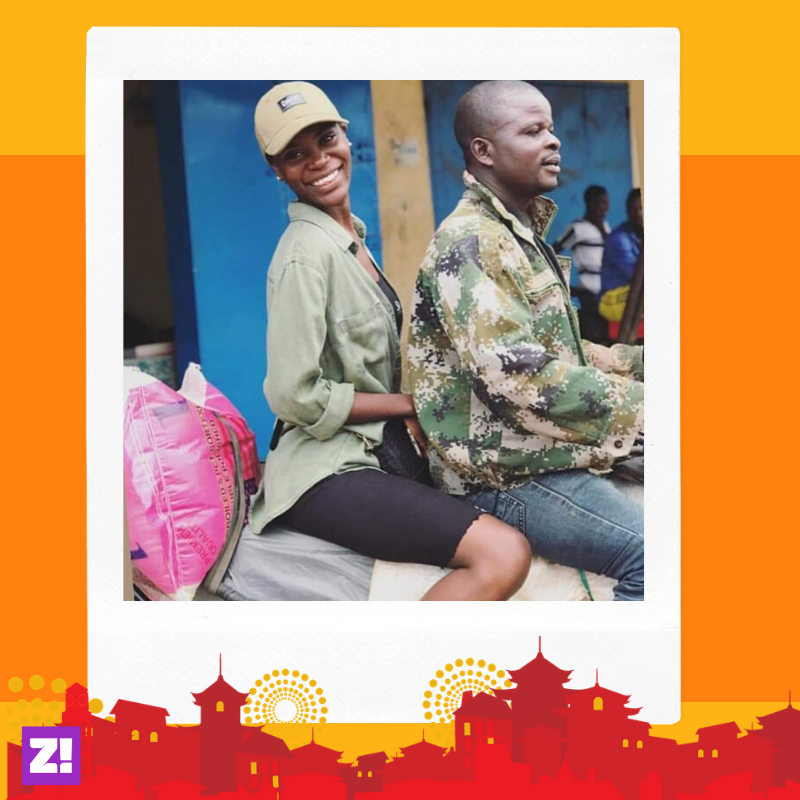
Oh wow. And how was life after Liberia was declared virus-free?
It was great, everyone was so relieved, but there was still a lot of hesitation. Social activities were still pegged, we still had directives to observe all the safety measures of the crisis and things stayed that way for around six months after the country was declared virus-free. Tests were still being carried out to confirm the country was truly ebola free during that period.
Can’t be too careful.
Exactly. You’ll still find hand sanitizers outside buildings even now. There are still screenings at the airport, you’ll still get your temperature checked, you’re still required to wash your hands before entering the airport. None of that has changed.
Got it. And politically? How’s the country holding up?
Well, it’s the typical African country politically. It’s lacking. We had Ellen Johnson Sirleaf, the people wanted change and a young person came. George Weah came, promised that change was imminent and yet nothing happened. Do you know how it feels to have change promised, only to be disappointed over and over again?
I might have an idea. *Stares directly into camera*
Funny, I wasn’t too disappointed. Two years into his tenure and I almost expected his under-performance. He was formerly in the senate and his impact wasn’t profound, so it was just a foreshadowing of his presidency really. Things are even worse now. Every time I call my mom back in Liberia, it’s one complaint after the other about the country. Protests like we’ve never had in Liberia are happening now, everyone just feels like the government has failed.

Did the government have anything to do with you moving to China?
Not really. I moved to China simply for school. I’m getting a Masters.
Oh word. How easy was it getting a Chinese visa from Liberia?
It was so easy getting it here. So I have a number of Nigerian friends and they were telling me how hard it is getting one from over there. But mine took maybe five days to come together. Once you have a good reason, mine was education, that’s enough.
A thousand Nigerians just googled flight ticket prices to Liberia. But speaking of China, why did I have to download WeChat before this interview could happen?
About that. I don’t think any social media platforms, that’s WhatsApp, Facebook, Twitter, etc works without using a VPN over here. They’re kind of deliberate with shutting themselves from the rest of the world. You can’t even Google anything here. They just want to have control over how information is passed. In my understanding.

Hm. That’s interesting. What’s are three things the Chinese do that would have any West African doing the sign of the cross?
Well, when you put it like that. There’s hardly any religion over here. They are full-on atheists. And this leads to the second thing, which is that the government tells the people what to do, supposedly in their best interest and the people follow it.
That’s Interesting Part 2.
Lastly, they don’t practice a democracy here. It’s more complicated and very different from what African countries say they practice.
Got it. This is random, when was the last time you held money in China?
I’ve been here since June 2019 and I can count how many times I’ve had to physically handle money. Remember WeChat? Well, that’s pretty much the way the money works here and also how the government tries to control the economy. Once money is deposited to your bank account and the money in your account is linked to your WeChat, your phone essentially becomes your money.
Oh yeah?
You can scan a QR code with the app at a store to pay for your purchases. You can send money instantly, you can borrow and pay it back from WeCaht. You can pay your fees through WeChat, anything really. You never have to worry about carrying any cash around, just have your phone charged.
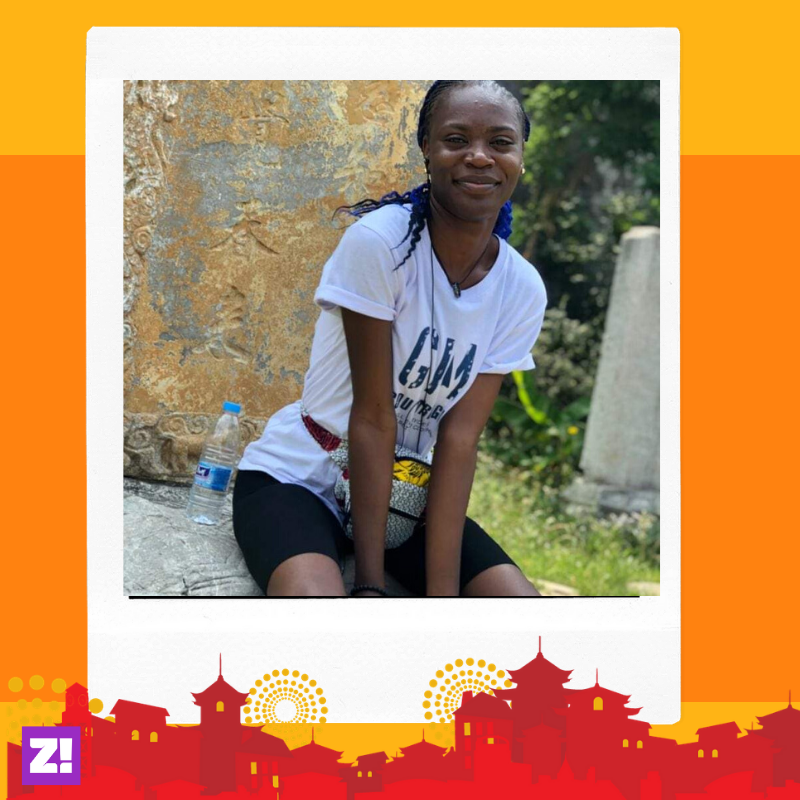
One acronym, two words. NEPA. Network failure. Must be nice anyway. What are the hardest parts about living in China?
Food! I have no issues with Chinese food and I respect people who eat it, but it’s not for me. To get African food, I have to order online or go to a restaurant and it’s not very ideal.
Sigh, Where’s Nigerian Jollof when you need it?
Haha. That and the language barrier. It even linked to my food issue. One night I was returning from a trip to another city and I was hungry. My phone battery was low and I had no cash on me but I wanted to go to a restaurant. The taxi I was in heard my destination wrongly and was taking me to some other place. 1 AM, no phone, no cash, headed to the wrong direction. Luckily, I saw a Congolese man coming out of a store in front of us, I literally shouted and he came. I explained to him what happened, he was gracious enough to pay the driver for me and to let me charge my phone in the store.
That’s too kind. Are there many black people in China?
Not at all. I mean, my class in university is full of them, I’m in an international college that teaches in English, so that’s a good thing. But everywhere else, zero. The Chinese are constantly asking me for a picture or being hostile or trying to touch my hair. It gets beyond annoying. Funny thing is, a lot of the time I’m wearing braids and extensions made in China and here I am, with Chinese people shocked at the appearance of it. I am constantly fending them off.
What? I am so sorry, can’t even imagine that. What else sucks in the country? Let’s drag them.
Hm. Not that much, I’ll be honest. Their transport is so efficient, I can’t even get into it. It’s not a bad place to live. I’ll admit that.
And the social life?
Well, I’m on campus, so I get to hang with friends a lot. We’re constantly visiting cities. That’s one thing about the Chinese, they travel a lot. The train stations are always full, people just ready to explore. There’s a nightlife too and these people drink beer. A ton of it, almost a worrying amount.
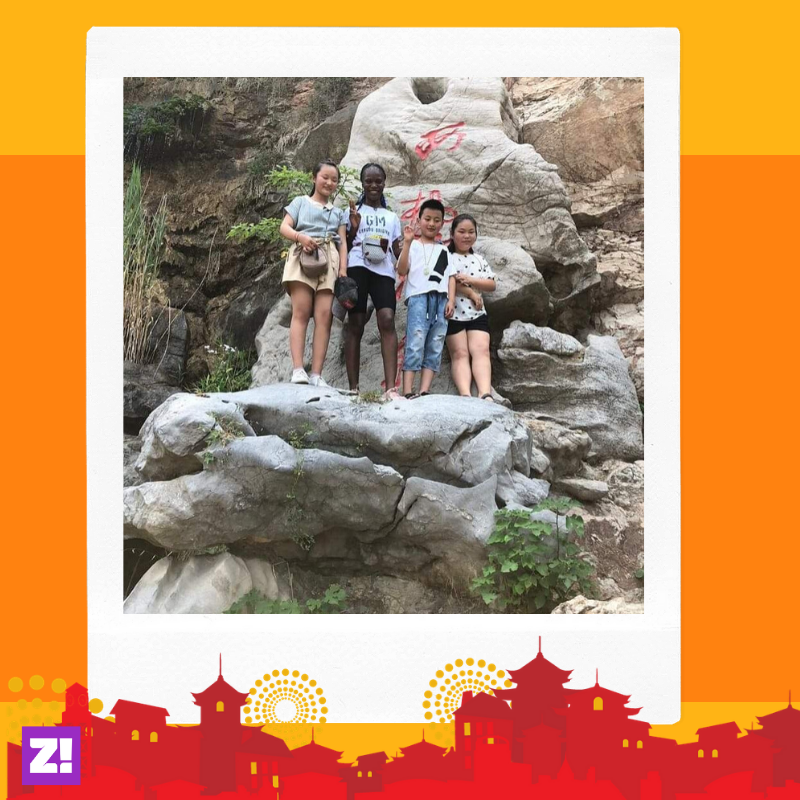
Jaiye X 2. Would you live there though?
I mean, getting a place to live and work after school shouldn’t be too hard. All I need is a valid visa and a resident permit. But no, Liberia is my first love, I’ll always go back.
Great. How do you say “God has delivered me from this long interview” in Chinese?
Haha. Ask back in a couple of months after I’ve taken more Chinese classes.
About Eno.
Eno Inwang is a Co-Founder of Lift Initiative. She holds a BA in Sociology from the United Methodist University.
She served as the head of the Liberian delegate to the 2016 Study of the U.S Institute for Women’s Leadership (SUSI) at the University of Delaware in Newark, Delaware where she obtains a certificate in Women’s Leadership. She also holds a certificate in Campaign Planning and Leadership form the Young Political Leadership School in Monrovia.
She is very passionate about issues that affect women and girls. She also passionate about early childhood education and development, national leadership and sustainable peace. She has over seven years of volunteer experience working with various advocacy issues including peace and security, education, as well as issues among and out of school youth.
Eno is looking forward to the establishment of a vibrant network of young women leaders from around the world, especially young women who are championing the cause for promoting development. She has dedicated her time working with less fortunate children in slum communities and diverse populations.
Want more Abroad Life? Check in every Friday at 9 A.M. (WAT) for a new episode. Until then, read every story of the series here.

